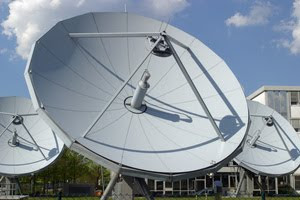I just read a post by a #twitter friend of mine, Zach (@ZacharyCohen). His post is here: What is wrong with me is what is right with me. I like this post and totally relate. I ran into these same issues that he speaks about regarding life in corporate america. It is, dare I say, a gauntlet that is difficult and maddening to navigate.
Now let's take part of the message, or what I take away as part of the message, and superimpose that on to agriculture. Zach is correct, we live in a kinetic world. We are by no means static. This message is never more evident when one thinks about agriculture, the business of growing our food, feed, and fiber - and now fuel. Agricultural practices are not static. They have never been, nor will they ever be.
As we march, some would say sprint, into the future, the practices and methodologies utilized by farmers will change; they must. The art form, based in science I might add, of farming will adapt. Take the recent advances in Precision Farming. Everything from Variable Rate Technologies, Sub-Inch Guidance, to Unmanned Aerial Vehicles. Agriculture will adapt and continue to improve. As more and more scientific models become commercialized and cost effective, producers of our food, fuel, fiber, and feed will adopt and use. We are getting better every day. Below is a high level diagram depicting what we in the "conventional" ag space are concerned with. Diagram courtesy of the National Natural Resource Management System, Indian Space Research Organization
o

When we look at the needed debates on the production of one of life's vital components, it becomes evident that many of the discussions are founded on the idea that the current production methodologies are static. I don't think this is intentional, but it is the case. I believe there is an assumption on the #Profood "side" that "conventional" farmers and ranchers don't want to change or are afraid of change. I could not disagree more.
Now commence the tangential discussion....
Let's take a 36,000 foot view of switching to organic methodologies for wheat. As anyone who makes their living off the land will tell you, migrating over to producing organically takes at least 3 years, usually 5. The USDA requires a 3 year limbo period before you obtain the Certified USDA Organic label. Now, we would all love for the production of food to be all altruistic, but even in 3BL terms, you need to make a profit. So while you are waiting for that certification, you have substantial added costs that cannot be recouped in the market place. I am also not convinced that organic methodologies are sustainable (another post will cover this topic)
Part of our issue also lies in the complexity of the food supply chain. It is easy, and sometimes warranted, to investigate and push back on the food system. There are a few players involved who are greedy and malevolent. We should not, and don't stand for the terrible practices that take place with these institutions. What happens is that the 98% of good, responsible farmers get caught in the crossfire. A perfect example of this is a recent episode of
The Ellen Show where Jonathan Foer "educates" everyone on eating meat. He actually made a comment that "more than 99% of animals that are raised for meat are raised on factory farms." Huh? News to me.
I wonder what the hundreds of thousands (or millions) of viewers thought about the US farmer after that 11 minutes?
Anyone have a guess....anyone...Bueller??
There is already a gaping chasm between farm and fork, and individuals like Mr. Foer are part of the problem. If you want to go after bad practices in the food industry, go for it! I will help. If you make ridiculous statements that 99% of the food, in this case meat, we eat comes from a producer who is outright deplorable, then I have a serious issue with that.
How many individuals do you think were influenced enough to, as Rob Smart (@jambutter) states, rightly so, get their asses back into the kitchen? None
How many individuals were encouraged to interface with a farmer to find out more about agricultural production? None. And why would they. Mr. Foer unequivocally stated that it is hidden and no-one would give him access. God forbid Mr. Foer ask an ag university or use the mighty Google search engine.
End of tangential discussion.....
My sincere apologies for the tirade above, but come on, Mr. Foer did not help close gaps; he made them worst.
The collective we in the business of producing food, feed, fuel, and fiber care deeply about our profession. We all want to satisfy the needs of the environment, population, and future generations. The notion that we don't because of a disagreement on very complex, dynamic, and scientific positions is just blatantly false.
A factual statement. The collective you (Profood) are no more Profood than the collective we. We are all profood.
Examples:
Profood believes in eating and cooking with fresh ingredients at home - so do we
Profood believes in producing food sustainably - so do we
Profood believes in local food economies - so do we
Profood supports CSA's, and organic - so do we
Profood believes in educating the consumer - so. do. we.
There is room, scratch that a NEED, for all of us, and if there is a position out there that we are going to deliver on the challenges we face without "conventional" farming, I suggest a re-evaluation. There are so many issues we face, from GHG's and climate change to reduced resources (land, water, etc..), food insecurity, cost of food, sound food policy, trade issues, and the list goes on. In the final analysis, a blend of practices is needed. This isn't a fight.
What is "wrong" with us, is what is right with us.













